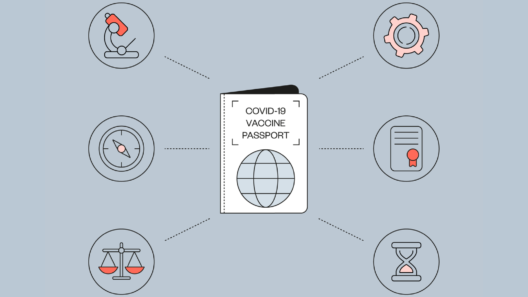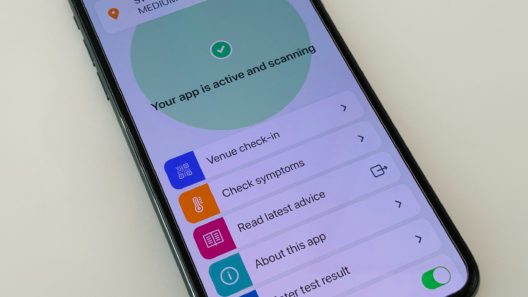International call for input: effectiveness and social impact of vaccine certificates and digital contact tracing
An open call for input from public health officials, civil society organisations, researchers and members of the public
13 July 2022
Reading time: 3 minutes

In response to the COVID-19 pandemic, the Ada Lovelace Institute undertook research to explore the risks and benefits of vaccine certificates and contact tracing apps. We found that that the efficacy and social impact of novel pandemic technologies is as important as the governance of personal data.
With new waves of COVID-19 occurring across the UK and around the world, and with continued focus on the use of health data (as demonstrated through the publication of several health data strategies and policies in the UK), we believe it is time to reflect on the last two years and consider the effectiveness of data-driven COVID-19 technologies. We are now undertaking research, consisting of:
- an international monitor that maps the roll out of COVID-19 technologies around the world, and includes country-specific case studies
- an open call for evidence
- a series of workshops convening experts and researchers from a range of sectors
- a series of blog posts that investigate country-specific domestic policies of, and public attitudes towards, the EU Digital COVID Certificate.
Call for evidence
Bringing in and drawing on expert insight and perspectives will be central to this project. We’re interested in hearing from as broad array of voices as possible. We want to hear from people from different backgrounds, countries and with different forms of expertise and insight.
We are interested in hearing from public health officials, civil society organisations and researchers on:
- Effectiveness
- Have contact tracing apps and vaccine passports been effective public health tools in the COVID-19 pandemic?
- What should the success criteria be for measuring the effectiveness of data-driven technologies?
- Social impact
- What are the experiences of the public with COVID-19 technologies, particularly those facing political, social and economic disadvantage(s)?
- How do these experiences impact attitudes towards data-driven technologies in the context of the pandemic and beyond?
- How do we balance unintended consequences with individual and collective benefits?
We aim to collect multi-disciplinary evidence from practitioners and researchers in (but not limited to) the behavioural sciences, public health policy, epidemiology, statistics, media studies and science and technology studies, as well as civil society and the humanitarian sector. We are also interested in hearing the lived experiences of interested individuals and communities.
What will we do with this evidence?
Evidence will primarily inform Ada’s international COVID-19 technology monitor as well as the project’s associated outputs such as policy briefings and consultation responses. We may also use this evidence to identify organisations, or individuals to commission to write country-specific case studies which strengthen our international evidence and analysis.
We aim to understand:
- principal social issues applicable to vaccine certificates and digital contact tracing across different countries
- lessons for future pandemics and the governance of health data more generally
- success criteria for understanding the effectiveness of data-driven interventions with a people-centred approach.
How to send us evidence
To submit evidence on any or all of the above questions, please send your response(s), along with your name and affiliation, to Melis Mevsimler, Visiting Senior Researcher: mmevsimler@adalovelaceinstitute.org by 19 August 2022.
NB Please indicate whether there are any parts of your submission that you want to remain anonymous.
Image credit: RomeoLu
Related content

International monitor: vaccine passports and COVID-19 status apps
A tracker collating developments in policy and practices around vaccine certification and COVID-19 status apps as they emerge around the world.

Checkpoints for vaccine passports
Requirements that governments and developers will need to deliver in order for any vaccine passport system to deliver societal benefit

COVID-19 digital contact tracing tracker
A resource for monitoring the development, uptake and efficacy of global attempts to use smartphones and other digital devices for contact tracing.